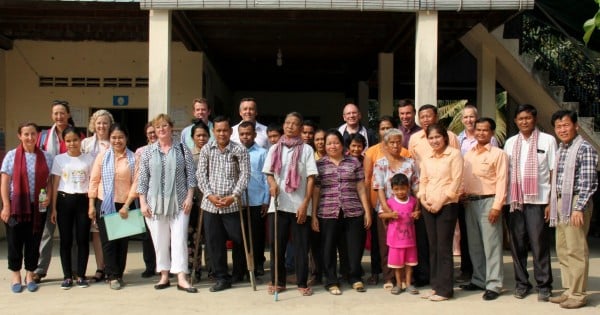
By Gai Brodtmann
As a young woman living with blindness in rural Cambodia, life has not been easy for Chenda.
Cambodia has one of the highest rates of disability in the developing world. It’s also one of the poorest. And people with disabilities are the poorest of the poor.
For people living with disabilities, there is very limited access to treatments, rehabilitation, and vocational training. At every point, life is a struggle – doubly so for women.
Across the developing world, women living with disabilities are two to three times more likely to be physically or sexually abused than women living without a disability.
And faced with such challenges, Chenda would be forgiven for thinking it was all too hard.
But Chenda is not just fighting. She’s winning.





























































































